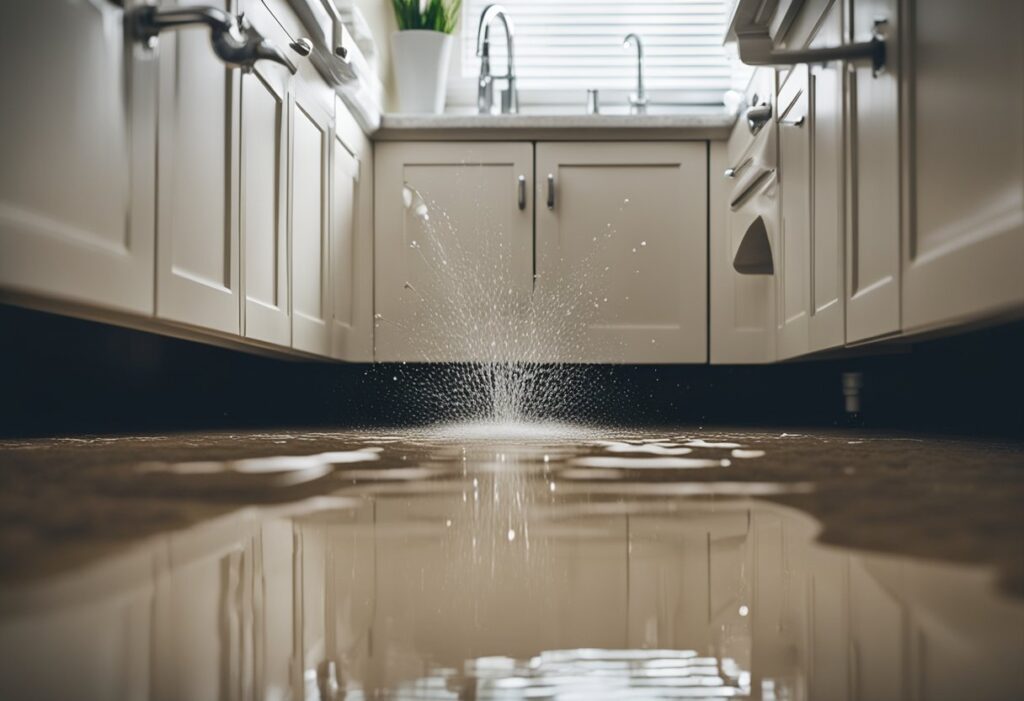
Plumbing issues can disrupt daily life and lead to costly repairs. The main causes of plumbing problems include clogs, leaks, corrosion, and improper installation. These factors can arise from various sources, such as debris buildup, aging pipes, or even environmental conditions.
Understanding these causes is essential for homeowners to maintain their plumbing systems effectively. By identifying potential issues early, they can take preventative measures, saving time and money in the long run. Knowledge of common plumbing problems empowers individuals to make informed decisions about repairs or upgrades.
Common Causes of Residential Plumbing Issues
Various factors contribute to plumbing issues in residential properties. Understanding these common causes can help homeowners take preventive measures and address problems efficiently.
Aging Pipes and Corrosion
Aging pipes are a significant source of plumbing issues. As pipes age, they can develop corrosion, leading to degradation of the material. Plumbing experts say that galvanized steel and cast iron pipes, which were commonly used in older homes, are particularly susceptible.
Corroded pipes can create leaks, reduce water pressure, and even introduce harmful substances into the water supply. Regular inspections can help identify signs of corrosion early, allowing for timely repairs or replacement to avoid extensive damage.
Clogs and Blockages
Clogs and blockages can occur in various areas of a plumbing system, particularly in drains and toilets. Common culprits include hair, soap scum, grease, and food particles. Plumbing experts suggest that regular maintenance and proper disposal practices can minimize these issues.
In kitchens, grease buildup in drain pipes is a frequent cause of blockages. Bathrooms often face clogs from hair and personal care products. Homeowners should consider using drain screens and avoid flushing inappropriate items to reduce the likelihood of clogs.
Leaks and Drips
Leaks and drips are another common problem in residential plumbing. They can originate from pipes, faucets, or fixtures. Even small leaks can lead to significant water wastage and higher utility bills over time.
Plumbing experts recommend routinely checking for leaks and addressing them promptly. Signs of leaks include water stains, molds in hidden areas, and dripping sounds. Timely repairs not only save water but also prevent further damage, such as mold growth or structural issues.
Factors Contributing to Commercial Plumbing Problems
Commercial plumbing systems face unique challenges due to their complexity and high usage.
High Volume Usage and Maintenance Neglect
In commercial settings, plumbing systems experience high volume usage daily. This constant demand can lead to significant wear and tear.

Frequent usage of toilets, sinks, and other fixtures increases the likelihood of clogs and leaks. For example, restaurants in West Palm Beach with heavy foot traffic may encounter grease buildup in pipes.
Maintenance neglect exacerbates these problems. If regular inspections and servicing are overlooked, minor issues can escalate.
Faulty Installation and Inferior Materials
Improper installation can cause serious plumbing issues in commercial buildings. If pipes are not correctly aligned or fixtures are improperly connected, leaks may occur.
Using inferior materials further complicates this problem. Low-quality pipes and fittings are more prone to corrosion and failure. For instance, businesses in regions like West Palm Beach may face issues from low-grade PVC or copper fittings that deteriorate over time.
It is essential for property owners to engage licensed professionals for installation. Investing in high-quality materials can lead to lower long-term maintenance costs and fewer plumbing emergencies.
External Causes of Plumbing Failures
Plumbing issues can arise from various external factors that affect the integrity of pipes and systems. Understanding these causes can help prevent significant damage and costly repairs.
Environmental Stress and Weather Impact
Extreme weather conditions can exert significant stress on plumbing systems. Heavy rains may lead to flooding, increasing the risk of water intrusion into basements or crawl spaces. Temperature fluctuations can cause pipes to expand and contract, resulting in cracks or breaks, particularly in older materials.
These environmental stresses require proactive measures, such as insulation for pipes and proper drainage systems, to mitigate their impact.
Tree Roots and Soil Shifting
Tree roots can pose a significant threat to underground plumbing. As roots seek moisture, they can infiltrate pipes, leading to blockages and severe damage. This issue is common in areas with large trees or older plumbing systems.
Soil shifting due to erosion or natural settling can also lead to pipe misalignment. Regular inspections and maintenance are essential to address these issues promptly and avoid costly repairs. Addressing tree root encroachment may involve using root barriers or opting for regular tree maintenance.
Identifying and Addressing Emergency Plumbing Situations
Recognizing plumbing emergencies and responding promptly is crucial in preventing further damage. Effective techniques and professional assistance can mitigate risks and ensure a safe environment.
Rapid Response Techniques
Prompt action is essential when facing a plumbing emergency. The first step is to identify the source of the problem, such as a burst pipe or overflowing toilet. Quickly turning off the main water supply can prevent extensive damage.

Next, assess the situation. If it involves standing water, it’s important to remove any valuables from the area. Using towels or a wet/dry vacuum can help manage minor flooding, while bucket collection can address toilet overflow until a solution is found.
Consider using plumbing tape or a pipe clamp as a temporary fix. These can provide brief respite, allowing time to seek professional help. Avoid using chemical drain cleaners, as they could worsen the situation and cause additional hazards.
Professional Solutions to Plumbing Emergencies
When a plumbing crisis exceeds DIY fixes, seeking professional help is vital. Plumbers can provide specialized tools and expertise to address major leaks, blockages, or sewage backups.
Emergency services often include 24/7 availability, allowing homeowners to get help any time. Skilled professionals will assess the plumbing system and identify underlying issues, not just the visible problem.
Tools like camera inspections enable a detailed view of pipe conditions. This technology helps ascertain whether repairs or replacements are necessary.
Establishing a preventive maintenance plan with a plumber can reduce the frequency of emergencies. Regular check-ups can catch potential issues before they escalate, providing homeowners with peace of mind.












